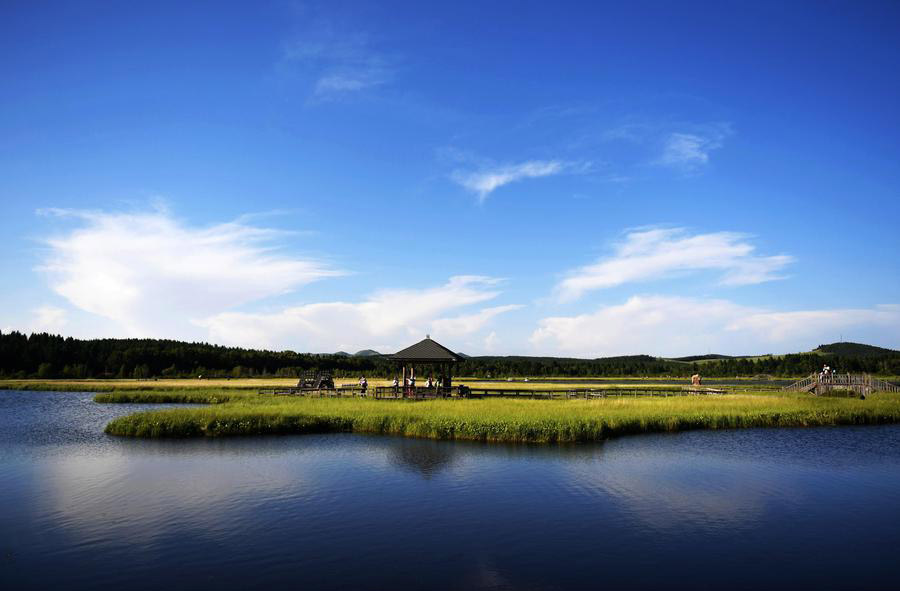Weichang shows way in green transition
By LIU ZIZHENG | China Daily | Updated: 2024-09-03 09:46

At a tree nursery in Weichang Manchu and Mongolian autonomous county of Hebei province, farmers are busy selecting and packing tree seedlings to be sold nationwide.
Over the past few decades, Weichang — once plagued by desertification — has emerged as a major supplier of such seedlings in China.
As a result, its ecological environment has improved and farmers' incomes have surged.
Liu Guoquan, president of Weichang Forest Seedling Association, told China Daily that the county has 75,000 mu (5,000 hectares) of tree nurseries and its forest coverage rate has reached 60.25 percent.
"More than 90 million seedlings are sold from here annually, generating nearly 700 million yuan ($98.54 million) in revenue," Liu said.
Weichang is situated at an average altitude of about 1,500 meters and has a relatively lower average annual temperature.
This provides a favorable growth environment for conifers, he said, adding that the industry's rapid progress has created more employment opportunities and enabled many rural households to rise out of poverty.
"Our association has cooperated with the local government to provide training for farmers, as well as grant professional qualifications to them, to ensure the high quality of the seedlings."
Eyeing sustainable growth, Weichang plans to further tap markets in western China. On Friday, it signed cooperation agreements with several companies in Gansu province and the Xizang autonomous region.
Efforts have also been intensified to advance the integrated development of primary, secondary and tertiary industries, especially by stepping up the development of rural tourism and ecotourism, Liu said.
Experts said the seedling providers should gradually shift their business focus and give better play to new quality productive forces.
Zhao Liangping, vice-president of the China Flower Association, said the country's overall demand for seedlings is declining because its urbanization and desertification control are nearing completion.
"However, as the quality of life of Chinese people continues to improve, they will spend more time on home gardening and will need more plants to decorate their balconies and courtyards," Zhao said.
Weichang must keep a close eye on the latest market trends and cultivate more seedlings for home gardening in advance, Zhao added.
Liang Zhiyong, vice-president of the China Economic Information Service (CEIS), said the seedling providers should embark on digital transition by introducing more advanced technologies such as big data and satellite remote sensing.
Liang said CEIS compiled a seedling price index for Weichang last December and he expected the county to better utilize the index as a reference and advance the standardized development of the industry.
























